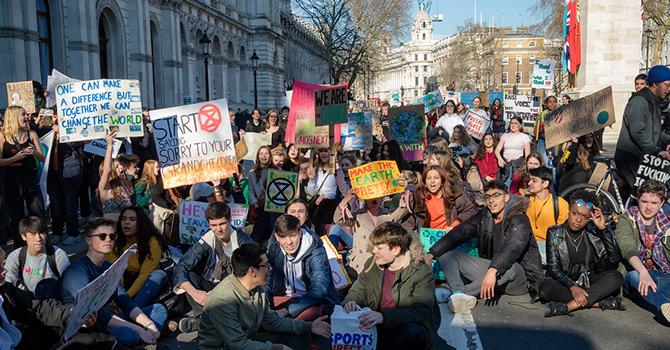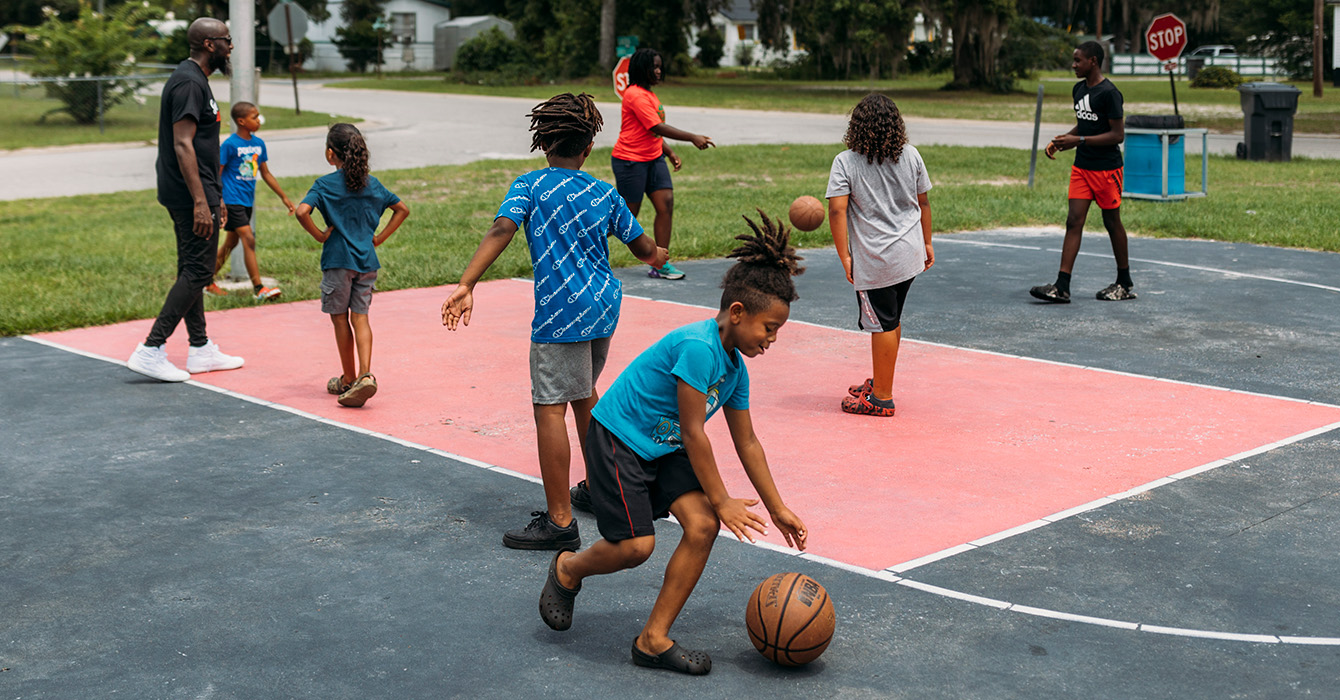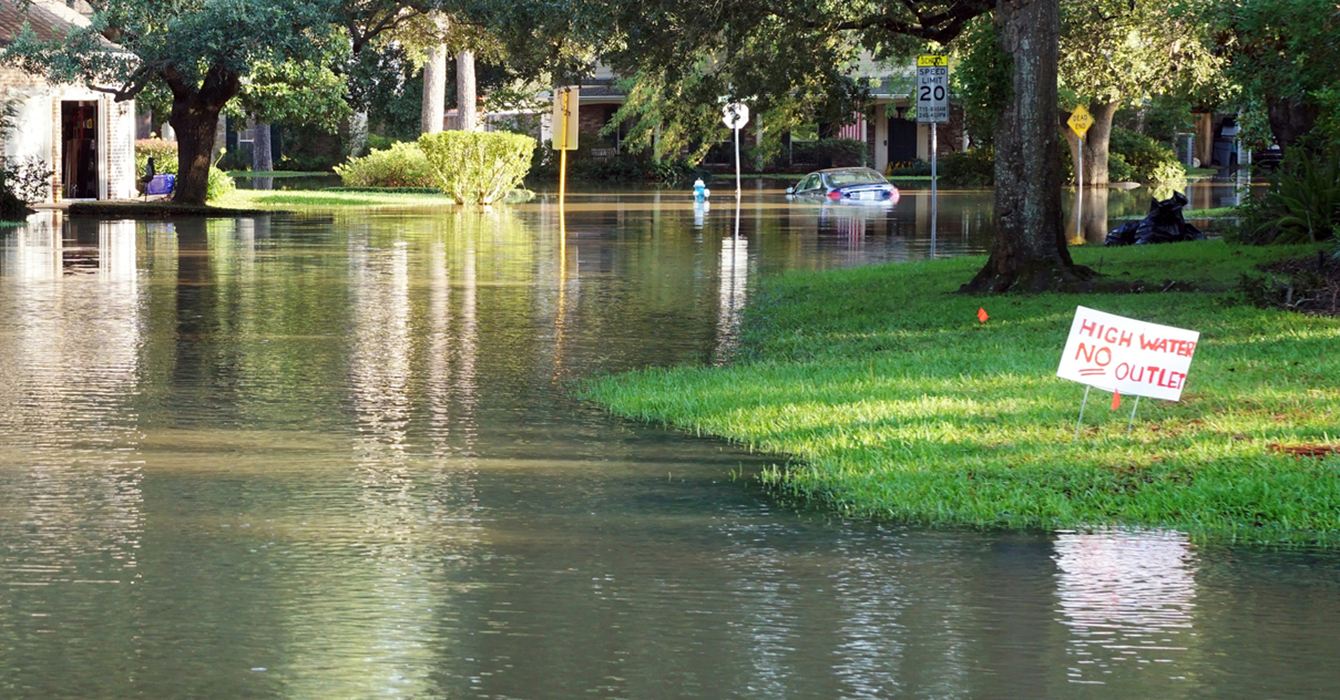Earth Day is April 22, and people around the world will be spending the day promoting environmental awareness and sustainability. In some ways, the success of Earth Day -- created in the U.S. in 1970 -- is heartening; nearing its 50th anniversary, the event is now celebrated in some 200 countries.
Yet I also have to wonder: How did we come to the point where we have to set aside a day to remember the earth?
Human beings, called to be stewards of the earth, have in fact become a danger to it. Today, we are witnesses to the profound effects of heedless human activity; our actions have resulted in climate change, arguably the most significant environmental change the earth has endured in hundreds of thousands of years.
As Christians, we need to recognize that this ecological crisis is also a theological crisis.
Scripture talks about the goodness of creation, and the creation story in Genesis offers us an idea of our role in it. Genesis 1:31 says: “Then God looked over all he had made, and he saw that it was very good!” (NLT). And in Genesis 2:15, we find that God put Adam in the garden of Eden to take care of it.
As we consider our role as stewards, we need to examine the relationship between the doctrine of creation and the doctrine of humanity. Sallie McFague, an ecofeminist theologian, argues that we need to reimagine God’s creation as part of God’s body.
McFague points out that we are animals, bodies dependent on other bodies, incarnational beings at the mercy of the many sources of power on our planet -- among them, climate change. From this perspective, we are not just the agents of climate change; we, as God’s creatures, are also its victims.
Perhaps this reimagining can help us change our course and shift it away from ecological disaster. As we reimagine the cosmos as God’s body, what does that imply for our theology?
Until now, we have set humanity over the entirety of creation, reasoning from a sense of species entitlement. Because human beings are created in the image of God, the logic goes, humans are more valuable than any other life form on the planet. Yet we see that elevating humanity as more-than has been detrimental to the planet and to ourselves.
There is no special day in the Bible for the creation of human beings; we were created on the same day as the animals. We all share the biosphere. In the current ecological crisis, it is necessary to emphasize humanity’s role as creature, not creator. Human beings, bearers of God’s image, have been given a special role as caretakers. But being fashioned and commissioned in the image of God is not the same thing as being God.
Creation itself is the body of God, and we ought to take care of the earth as we would care for God’s body. We are partners in creation, and we need to consider its well-being as a whole.
Further, environmental well-being is intimately related to economic well-being. It is a matter of justice, because the people affected most by ecological disaster are those who live in poverty.
I am part of the World Council of Churches (WCC) working group on climate change. The group’s 27 members from around the world reflect theologically on climate change, speak out on environmental issues and advocate for sustainable living.
To emphasize the link between environmental and economic justice, the WCC has adopted the term “eco-justice” for its approach, implemented across several projects and initiatives. The Ecumenical Water Network of the WCC, for example, emphasizes that access to clean water is a human right.
This is an issue that young people are embracing. On March 15, youth around the globe went on strike to protest government and corporate inaction on climate change. The movement began last summer with Swedish teenager Greta Thunberg, who called for action from her peers. This year, youth from more than 100 countries participated in the protest, and in the U.S., events were planned in almost every state.
The youth are making a clear statement: We need to act now before it is too late. They are the ones who will have to live with the actions or inactions of their predecessors, and they are fighting for the attention of those who will listen.
I see this in my own children as they try to live sustainably. My teenage daughter Elisabeth has become especially active on environmental issues. She and other students at her school learned that tangles of fishing line were hurting wildlife in the streams near the school.
She helped establish an initiative to generate awareness and create convenient monofilament receptacles for fishers’ discarded lines. After receiving approval from the city parks department, she and a group of students applied for grants to install these receptacles this spring.
As youth around the globe protest the devastating effects of climate change, we need to reflect and challenge what people of faith are doing -- or not doing.
Earth’s biosphere needs all of us to join together to work toward environmental justice. We need to advocate for our planet and be at peace with it. We need to bring Christians, Hindus, Buddhists, Muslims, individuals, communities, governments, churches and corporations together and challenge each other to lives of stewardship rather than greedy destruction.
We need to seek ways of reducing carbon emissions in our homes as well as our places of work, recreation and worship. What happens in our backyard is not contained: China’s pollution-choked air is carried by the wind to other lands; America’s toxic chemical runoff finds its way to distant shores.
We must be vigilant in our actions and think of those who will inevitably have to face a perilous earth in the near future. We must act now, because tomorrow will be too late.
As stewards of the earth, humans are called by God to live sustainably and work toward creation care. We all have a part to play. This Earth Day, how will you live out God’s call?

















